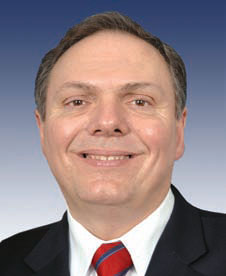Related Research Articles

A respiratory therapist is a specialized healthcare practitioner trained in critical care and cardio-pulmonary medicine in order to work therapeutically with people suffering from acute critical conditions, cardiac and pulmonary disease. Respiratory therapists graduate from a college or university with a degree in respiratory therapy and have passed a national board certifying examination. The NBRC is the not-for-profit organization responsible for credentialing the seven areas of Respiratory Therapy in the United States.

Medicare is a national health insurance program in the United States, begun in 1966 under the Social Security Administration (SSA) and now administered by the Centers for Medicare and Medicaid Services (CMS). It primarily provides health insurance for Americans aged 65 and older, but also for some younger people with disability status as determined by the SSA, and people with end stage renal disease and amyotrophic lateral sclerosis.

The Medicare Prescription Drug, Improvement, and Modernization Act, also called the Medicare Modernization Act or MMA, is a federal law of the United States, enacted in 2003. It produced the largest overhaul of Medicare in the public health program's 38-year history.

Michael Makoto Honda is an American politician and former educator. A member of the Democratic Party, he served in Congress from 2001 to 2017.

Robert William Bishop is an American politician serving as the U.S. Representative for Utah's 1st congressional district since 2003. A member of the Republican Party, he has been the dean of Utah's congressional delegation since the retirement of Orrin Hatch from the U.S. Senate in 2019.

The Children's Health Insurance Program (CHIP) – formerly known as the State Children's Health Insurance Program (SCHIP) – is a program administered by the United States Department of Health and Human Services that provides matching funds to states for health insurance to families with children. The program was designed to cover uninsured children in families with incomes that are modest but too high to qualify for Medicaid. The program was passed into law as part of the Balanced Budget Act of 1997, and the statutory authority for CHIP is under title XXI of the Social Security Act.

The Social Security Amendments of 1965, Pub.L. 89–97, 79 Stat. 286, enacted July 30, 1965, was legislation in the United States whose most important provisions resulted in creation of two programs: Medicare and Medicaid. The legislation initially provided federal health insurance for the elderly and for poor families.

The Progressive Democrats of America (PDA) is a progressive political organization and grassroots political action committee operating inside and outside of the United States Democratic Party.

David Lee Davis is a Republican politician from Tennessee and one-term member (2007–2009) of the United States House of Representatives and Tennessee House of Representatives. He represented Tennessee's 1st congressional district, located in the northeastern portion of the state and centered on the Tri-Cities area, but was narrowly defeated in the 2008 primary by Johnson City Mayor Phil Roe.
The Balanced Budget Act of 1997,, was an omnibus legislative package enacted by the United States Congress, using the budget reconciliation process, and designed to balance the federal budget by 2002. This act was enacted during Bill Clinton's second term of his presidency.

Suzan Kay Oliver DelBene is an American politician and businesswoman who has been the United States Representative from Washington's 1st congressional district since 2012.

The Older Americans Act of 1965 was the first federal level initiative aimed at providing comprehensive services for older adults. It created the National Aging Network comprising the Administration on Aging on the federal level, State Units on Aging at the state level, and Area Agencies on Aging at the local level. The network provides funding – based primarily on the percentage of an area's population 60 and older – for nutrition and supportive home and community-based services, disease prevention/health promotion services, elder rights programs, the National Family Caregiver Support Program, and the Native American Caregiver Support Program.
The proposed America's Affordable Health Choices Act of 2009 was an unsuccessful bill introduced in the U.S. House of Representatives on July 14, 2009. The bill was introduced during the first session of the 111th Congress as part of an effort of the Democratic Party leadership to enact health care reform. The bill was not approved by the House, but was superseded by a similar bill, the proposed Affordable Health Care for America Act, which was passed by the House in November 2009, by a margin of 220-215 votes but later abandoned.
The Affordable Health Care for America Act was a bill that was crafted by the United States House of Representatives of the 111th United States Congress on October 29, 2009. The bill was sponsored by Representative Charles Rangel. At the encouragement of the Obama administration, the 111th Congress devoted much of its time to enacting reform of the United States' health care system. Known as the "House bill,” HR 3962 was the House of Representatives' chief legislative proposal during the health reform debate.

The Health Care and Education Reconciliation Act of 2010 is a law that was enacted by the 111th United States Congress, by means of the reconciliation process, in order to amend the Affordable Care Act (ACA). The law includes the Student Aid and Fiscal Responsibility Act, which was attached as a rider.

The SGR Repeal and Medicare Provider Payment Modernization Act of 2014 is a bill that would replace the Sustainable Growth Rate (SGR) formula, which determines the annual updates to payment rates for physicians’ services in Medicare, with new systems for establishing those payment rates.

The Protecting Access to Medicare Act of 2014 is a law that delayed until March 2015 a pending cut to Medicare physician payment, a cut that had been regularly delayed for over a decade. Because the law only delayed and did not repeal the physician payment cut, it was a source of controversy.

The Improving Medicare Post-Acute Care Transformation Act of 2014 or IMPACT Act of 2014 is a bill that is intended to change and improve Medicare's post-acute care (PAC) services and how they are reported.
Brand New Congress is an American political action committee formed by former staffers and supporters of Bernie Sanders's 2016 presidential campaign to elect hundreds of new congressional representatives in line with the campaign's political platform.

A collaborative practice agreement (CPA) is a legal document in the United States that establishes a legal relationship between clinical pharmacists and collaborating physicians that allows for pharmacists to participate in collaborative drug therapy management (CDTM).
References
- ↑ Shapiro BA (1976). "Traditions and possibilities of licensure in respiratory therapy". Respir Care. 21 (10): 964–8. PMID 10314763.
- ↑ Tennessee Code Annotated 63-27
- ↑ Arkansas Code Unannotated Title 17, Chapter 99
- ↑ Official Code of Georgia Title 43, Chapter 24, Article 6
- ↑ Tennessee Code Annotated 63-27-103
- ↑ Arkansas Code Unannotated 17-99-201
- ↑ Official Code of Georgia § 43-34-143
- ↑ New Jersey Administrative Code Title 13, Chapter 44
- ↑ 112th Congress (2011) (Mar 8, 2011). "H.R. 941". Legislation. GovTrack.us. Retrieved August 28, 2011.
Medicare Respiratory Therapy Initiative Act of 2011
- ↑ 110th Congress (2007) (Oct 25, 2007). "H.R. 3968". Legislation. GovTrack.us. Retrieved August 28, 2011.
Medicare Respiratory Therapy Initiative Act of 2007
- ↑ 110th Congress (2008) (Mar 5, 2008). "S. 2704". Legislation. GovTrack.us. Retrieved August 28, 2011.
Medicare Respiratory Therapy Initiative Act of 2008
- ↑ 111th Congress (2009) (Jan 29, 2009). "S. 343". Legislation. GovTrack.us. Retrieved August 28, 2011.
Medicare Respiratory Therapy Initiative Act of 2009
- ↑ 112th Congress (2011) (Mar 8, 2011). "H.R. 941". Legislation. GovTrack.us. Retrieved August 28, 2011.
Medicare Respiratory Therapy Initiative Act of 2011